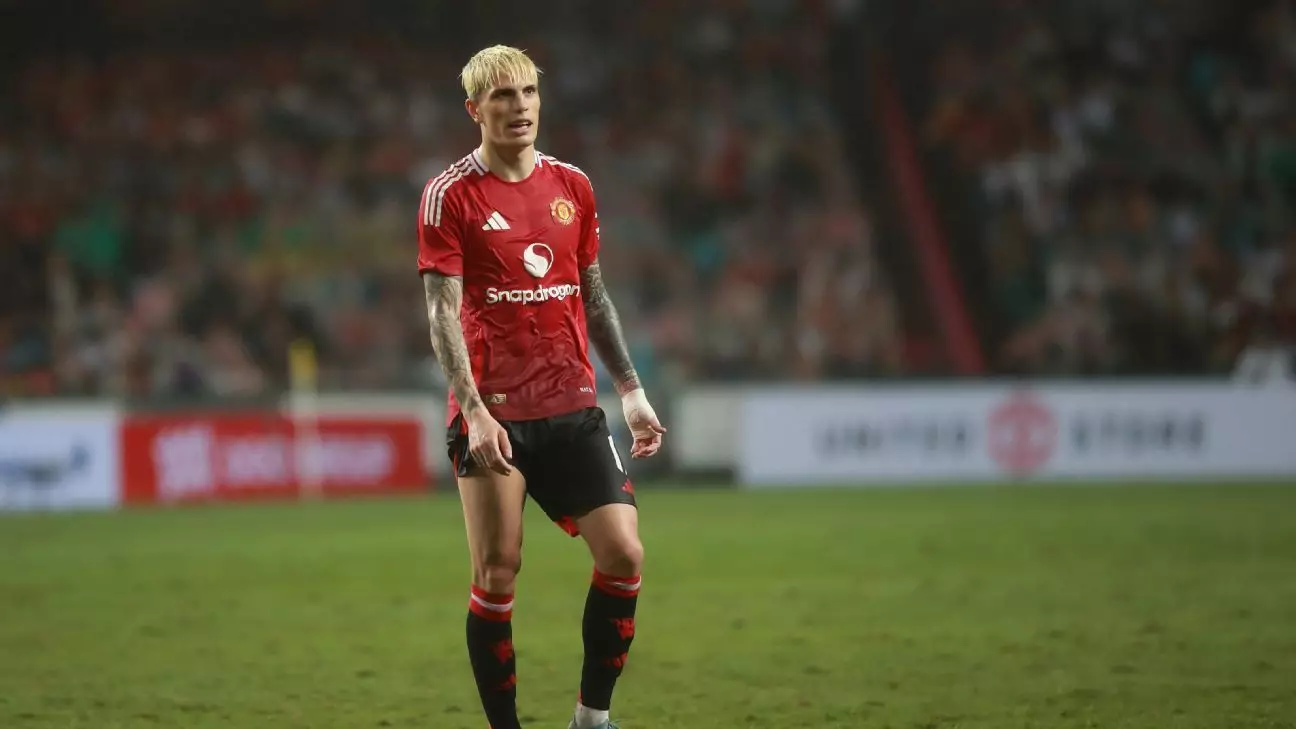Manchester United finds itself at a pivotal juncture, navigating transitions with a mixture of uncertainty and strategic patience. The decision by Ruben Amorim to maintain a flexible approach toward sidelined players exemplifies a deeper philosophy rooted in resilience. Instead of succumbing to immediate pressure to sell or alter the squad, the club is embracing an attitude of endurance and hope, signaling a belief that circumstances will eventually align in their favor. This mindset, however, is not merely about holding onto players; it’s a testament to the club’s faith in their internal strength and long-term vision. Such a stance, while audacious, underscores the importance of adaptability in modern football—where patience often becomes a weapon against fleeting trends and market-driven impulsiveness.
The willingness to retain players like Garnacho, Antony, Sancho, and Malacia, despite external influences, demonstrates that Manchester United is prioritizing stability and the value of potential over short-term gains. By allowing these players space to decide their future, the club is fostering an environment that champions growth, rather than capitulation to pressure. This approach recognizes that player development is not strictly linear, and sometimes, the biggest breakthroughs emerge from periods of uncertainty. The emphasis on a culture that values patience and internal development challenges the typical narrative of relentless turnover, advocating instead for strategic longevity.
Strategic Patience Amid Market Realities
Amorim’s candid remarks reveal a nuanced understanding of the transfer market’s volatility. Phrases like “if they don’t reach that number, they will be Manchester United players” reinforce a resilient stance: the club refuses to operate solely on financial desperation or market anxieties. Instead, Manchester United seems committed to a pragmatic approach—waiting for the right offers, but also ready to adapt if they don’t materialize within the deadline.
This patience, however, is not rooted in complacency but in strategic calculation. The club’s leadership, including CEO Omar Berrada and Director of Football Jason Wilcox, publicly acknowledge the ongoing negotiations, hinting at a behind-the-scenes chess game where patience can often be a virtue. Such a stance demonstrates that Manchester United remains confident in their asset valuation and understands that rushing to offload players might undermine their long-term plans. Instead, they generate an environment where players are encouraged to push for their rightful place, whether through competition or development, maintaining dignity and morale in the process.
Additionally, the focus on players fighting for World Cup spots intensifies this narrative of resilience. By emphasizing that players must earn their place through performance, Amorim subtly advocates for a culture where motivation arises from internal drive versus external pressure. This approach could cultivate a more competitive squad where individual responsibility and collective ambition are intertwined.
Renewal Through Internal Competition and Tactical Flexibility
The arrival of new signings like Matheus Cunha and Bryan Mbeumo signifies a strategic infusion of talent, injecting fresh energy into the squad without succumbing to panic buys. Amorim’s measured perspective on whether Manchester United will start the season with a new striker underscores his confidence in the existing squad’s potential. Rather than rushing into signings that may not align perfectly with the team’s identity, he champions a careful, deliberate process—one that values fit, motivation, and internal cohesion over impulsive transfers.
The club’s ongoing search for a striker, potentially Ollie Watkins, shines a light on their desire for strategic reinforcements. Yet, Amorim’s optimism that the existing roster is sufficient if they work together highlights a broader belief in resilience through internal development. He underscores the importance of fostering better connections among players like Josh Zirkzee and Rasmus Hojlund, emphasizing that collective harmony often outweighs individual star power.
This philosophy of internal competition is a form of resilience in its purest form—encouraging players to elevate their game amid uncertainty, knowing that their fate is intertwined with their effort. Manchester United’s emphasis on perseverance, versatility, and internal motivation might ultimately serve as a blueprint for overcoming the turbulence of transfer windows and squad rebuilding. It is a testament to the club’s belief that enduring hardship and remaining adaptable are key virtues for sustained success in football’s unpredictable landscape.


Leave a Reply